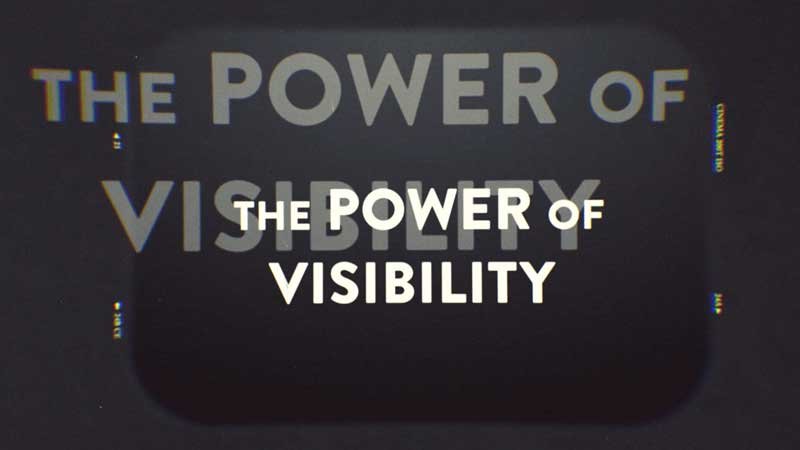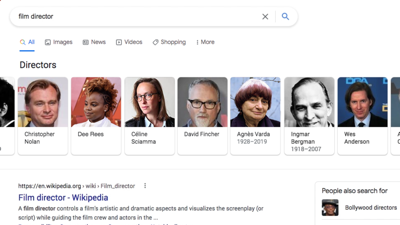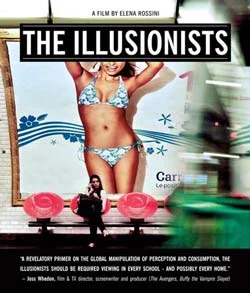A project by Elena Rossini & Mimi Anagli
Let us show you why visibility matters
#VisibleResults
Synopsis
The Power of Visibility is a short film by Elena Rossini and Mimi Anagli showing the monumental impact a simple change in Google search results could have for generations of underrepresented artists.
Guest Post
Read our guest post on Women and Hollywood: “How the World’s Largest Search Engine Can Help Fix Hollywood’s Representation Problem”.
The Filmmakers – Bios

Elena Rossini
Elena Rossini is an Italian filmmaker, photographer and activist. Rossini’s work focuses on issues of social justice, media representation, and the empowerment of womxn and girls. Her most notable film is the critically acclaimed documentary The Illusionists, about the globalization of beauty ideals, which Rossini shot in eight countries, across four continents. The film has been featured in Vogue Italy, New York Magazine, NPR, FOX and NBC Baltimore, amongst others. Rossini is the creator of hundreds of GIFs depicting women in film – which have dominated GIF search results, accruing hundreds of millions of views.

Mimi Anagli
Mimi Anagli is an American freelance writer, video editor, and cinematographer. She is a staff writer for the feminist film publication agnés films and critic for the publication Take 2 Indie Review. She is also a Senior Video Editor for the influencer marketing agency Outloud Media. As a student, Mimi had the opportunity to attend the 72nd Cannes Film Festival and the 2019 Toronto International Film Festival, where she interned for The Hollywood Reporter. Now graduated with a bachelors degree in Film Studies and Professional and Public Writing, Mimi is working in Paris, continuing to focus on projects centered on social justice and gender equality.
Filmmakers’ Statement
Elena Rossini
The lack of representation of women working in film has been on my mind for years. Ever since I graduated from film school, I have had a hard time being taken seriously as a filmmaker. If I could have had a dollar every time I heard “You don’t look like a film director” or “do you mean you’re actually a film student?”… I could have funded a big budget film.
Why is this a problem? My experience is common. Historically, women directors have had a really hard time getting funded. According to a 2018 study by UNESCO “In Europe, only 1 in 5 films is directed by a woman and only 16% of the funding goes to films directed by women.” Imagine all the stories that have not come to life because female artists couldn’t get support and funding.
I became a mother a few months ago; I am now more passionate than ever about the issues of visibility and representation. I want my baby girl to grow up in a world where she will feel her voice matters. And that her credibility and authority are not dimished by her gender. A world with better representation. And if that world doesn’t exist (yet) I wanna work really hard to create it for her.
Mimi Anagli
As a black woman in film, I’ve always understood why visibility matters. Growing up, the lack of diversity in media led me to believe that there wasn’t a space for a voice like mine in cinema. Finding a community of feminist filmmakers has allowed me grow past this belief, speak up in spaces where I am overlooked, and advocate for the visibility of other underrepresented artists. While many of my artistic efforts have shed light on the topic of diversity in film, The Power of Visibility opens up a unique conversation that will make women and people of color feel seen on a large scale. With this film, we hope to get the attention of structures in power, such as the Google search engine, and show them the monumental impact simple changes can have on the generations of underrepresented artists who have felt unseen and discouraged by the undiverse optics of film and TV.
“The Power of Visibility” – Downloadable Stills
Methodology
by Elena Rossini
I have been searching for “film director” in Google and recording the results ever since the introduction of Google Cards… for years. Admittedly, there are now more women showing up when one searches for “film director” “film producer” or “cinematographer.” As recently as two-three years ago, the results were overwhelmingly male – and white.
Ironically, I attended many workshops at Google’s incubator inside Station F in Paris, France, in late 2019. I wanted to get better at search engine optimization for my websites – and have them become more visible in search results. I distinctly remember what my teacher Tristan said: that the results I see in the first page of Google are a byproduct of all the searches I have conducted. And that if I wanted to see the real ranking of a site, how it appears for most users, I would have to use my browser’s private or incognito mode. So, that’s what I did for this film. I used a VPN to fake my location in New York City, opened a new private window in Firefox and ran my searches.
I think it’s important to point out that this experiment – about which filmmakers appear in Google Cards and the gender disparity that exists – is possible in English because it is a gender-neutral language.
I’m also fluent in Italian and French and alas, these languages are gendered. Pronouns, nouns, verbs, and adjectives reflect the gender of the object or person they refer to. The same professional roles I searched for in this video do have gender distinctions. For example, in French film director is “réalisateur” (it defaults to the masculine) but a female director is “réalisatrice.” In Italian, film director has an exception to the rule: “regista” works for both male and female directors when it’s singular; when it’s plural, referring to the category “film directors”, it can be either masculine (“registi”) or feminine “registe” but the default is the masculine. Thus the choice of English for this video.












